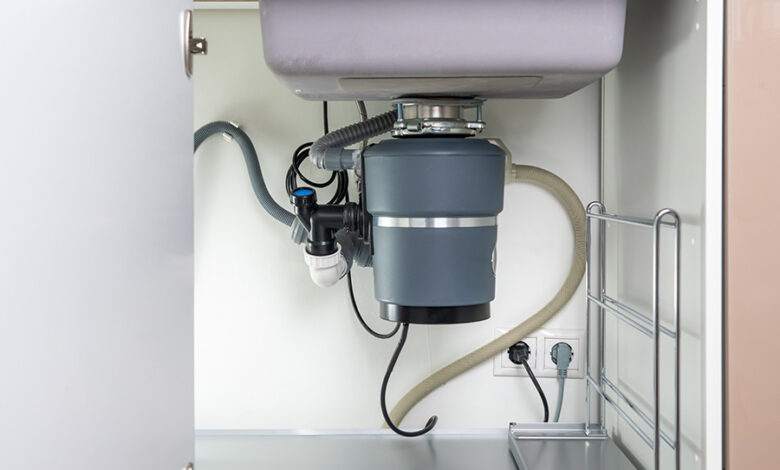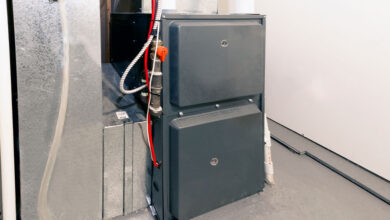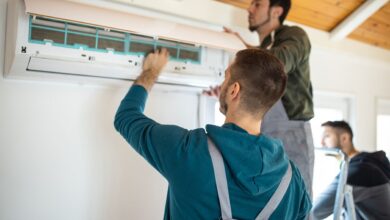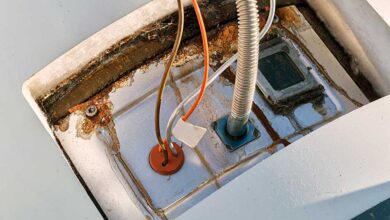Why Your Garbage Disposal Isn’t Working — Causes and Fixes for Colleyville, TX Homeowners

Your garbage disposal can jam, it can hum without grinding, or it may simply stop working altogether. These common issues can disrupt your kitchen routine and leave you feeling frustrated. Understanding the reasons behind these failures and knowing how to troubleshoot can save you time and hassle. But before you attempt any fixes, it’s essential to take into account some safety precautions. Let’s explore what might be causing your disposal problems and how to address them effectively.
Common Causes of Garbage Disposal Failure
When your garbage disposal stops working, it can be frustrating, especially if you rely on it daily. Several common issues might be causing the problem.
First, check for jams. Sometimes, food debris can get stuck, preventing the blades from spinning. Carefully removing the obstruction can often resolve this.
Another possible cause is a blown fuse or tripped circuit breaker. If your disposal refuses to turn on, make sure the electrical supply is intact.
Remember the reset button, which is usually located on the bottom of the unit. If the disposal has overheated, pressing this button can restore function.
Lastly, a clogged drain can also lead to a non-functioning disposal. If water backs up, it may signal a blockage that needs attention. Seeking professional services can provide expert knowledge for quick identification and resolution of issues.
Addressing these common causes can help you get your disposal back in working order.
Troubleshooting Steps for Non-Working Units
If your garbage disposal is still refusing to work after checking for jams, electrical issues, and clogs, it’s time to troubleshoot further.
First, locate the reset button, usually found on the bottom of the unit. Press it to reset the disposal. If it still won’t budge, check the circuit breaker to verify it hasn’t tripped.
Next, inspect the power cord for any damage or loose connections. If the unit hums but doesn’t grind, it may need the flywheel manually turned using a hex wrench in the designated hole at the bottom.
If none of these steps work, consider removing the disposal and checking for internal blockages. Reinstall it securely and test again.
If you’re still having trouble, it might be time to call a professional for further assistance. Timely repairs can protect your home from damage if needed! Don’t hesitate to reach out for help if needed!
Safety Precautions to Take Before Repairing
Before diving into any repairs on your garbage disposal, it’s crucial to prioritize safety. You don’t want to risk injury while trying to fix a simple issue.
Here are some precautions you should take before getting started:
- Unplug the Unit: Always disconnect power to the disposal before touching any parts to prevent accidental activation.
- Use Proper Tools: Make sure you have the right tools on hand, such as a screwdriver or pliers, to avoid using makeshift substitutes that could lead to accidents.
- Wear Protective Gear: Consider wearing gloves and safety goggles to protect your hands and eyes from sharp objects and debris.
Taking these steps will keep you safe and make your repair process smoother. Additionally, if your disposal issue escalates, remember that you can contact a professional emergency plumbing service for immediate assistance.
When to Call a Professional for Help
Sometimes, tackling a garbage disposal issue may feel overwhelming, and that’s when it’s wise to call a professional for help. If your disposal’s making strange noises, leaking, or not turning on at all, it’s time to reach out to an expert. These symptoms can indicate deeper problems that may lead to further damage if not addressed promptly.
Additionally, if you’ve tried basic troubleshooting—like resetting the unit or checking for jams—and nothing’s worked, don’t hesitate to call in a technician. Professionals possess the right tools and expertise to safely diagnose and fix the issue. Furthermore, they can provide emergency pipe repair services if the disposal problem leads to plumbing issues that require urgent attention.
Moreover, if you notice frequent clogs or persistent odors, consult a plumbing specialist. They can identify underlying plumbing issues that may be affecting your disposal’s performance.
Preventative Tips to Avoid Future Issues
Adopting a few simple habits will keep your garbage disposal running smoothly and prevent future issues.
By being mindful of what goes down your disposal and how you maintain it, you can avoid clogs and malfunctions.
- Run cold water while the disposal is on: This helps flush food particles through the system and prevents buildup.
- Avoid fibrous or starchy foods: Items like celery, potato peels, and pasta can tangle or swell, leading to jams.
- Regularly clean your disposal: Use ice cubes and vinegar or baking soda to help remove odors and debris.

Conclusion
To summarize, if your garbage disposal’s not working, don’t panic—you’re not stuck in the Stone Age! By checking for jams, inspecting the power supply, and following the troubleshooting steps, you can often get it back in action. Just remember to prioritize safety before diving into repairs. If issues persist, don’t hesitate to call a pro for help. With a little care and maintenance, you can keep your disposal running smoothly for years to come!




